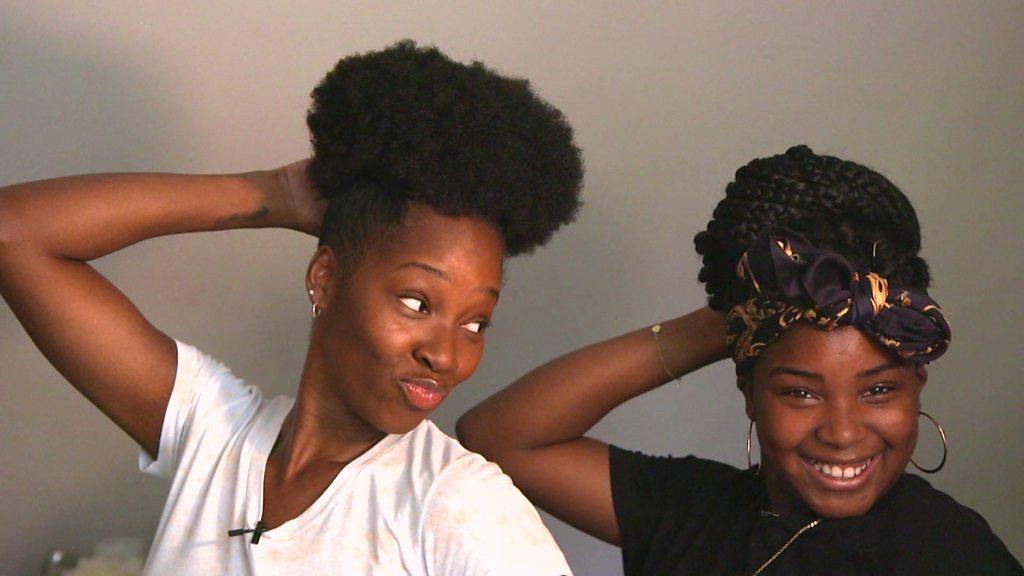BBC Young Reporter: 'I want my story to shine a light on afro-textured hair'
- Published
- comments
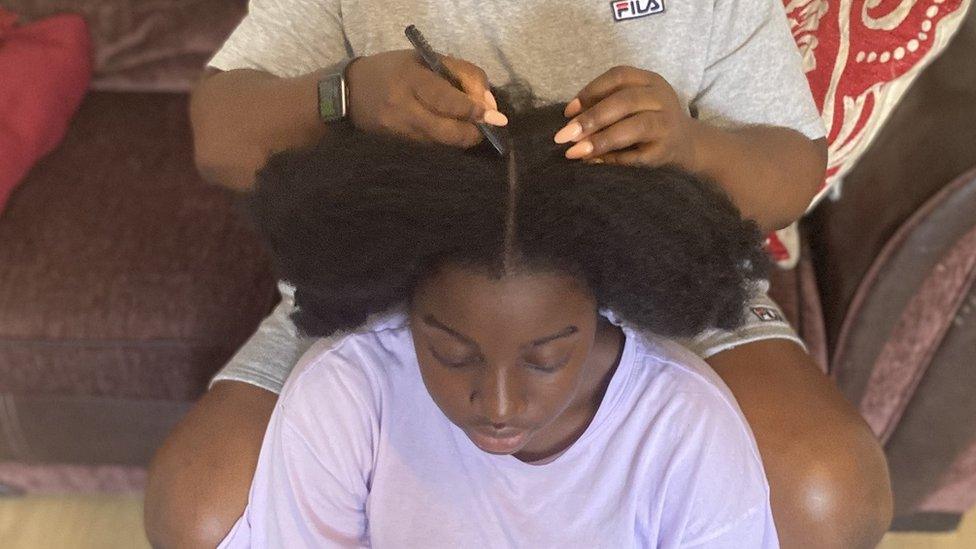
"Afro-textured hair is an important part of a young black person's identity. So why isn't it widely talked about at a young age?"
That's what BBC Young Reporter Keziah, aged 12, wants to "shine a light on".
She says she "felt isolated" when she was growing up and wishes she could have learnt to appreciate her afro hair earlier.
Now she wants to help spread awareness of afro-textured hair to help other people understand and celebrate it.
What is Afro-textured hair?
Afro-textured hair is associated with people of African and/or Caribbean descent.
It can be curly, coiled and bouncy. It can sometimes be dry and needs to be looked after in a different way to straight hair.
Your hair could be straight, wavy, curly or kinky.
The type of hair that you have is decided by the shape of your hair follicles - tiny parts of your skin that grow hair.
People with very curly hair have follicles that are oval-shaped and people with straight hair have round follicles.
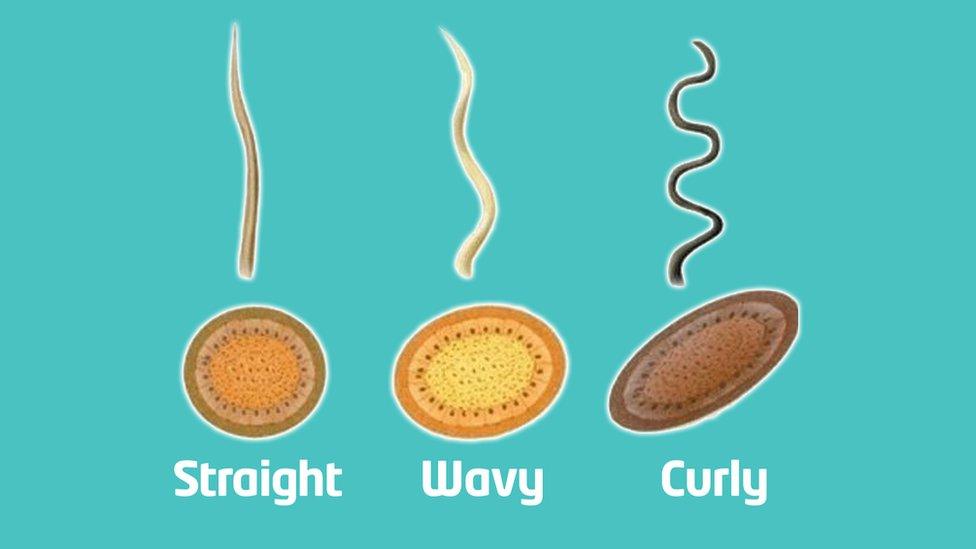
Take a look at how your hair follicle would look depending on your hair type
Keziah's story
Growing up, Keziah wanted to have straight hair. She said: "As a child, being a first generation British citizen it became apparent to me that there was next to no one else who had the same hair as me."
When she was at primary school, she said that having afro hair made her feel isolated because most people had straight hair.
She thinks many young black people feel like this but says "children shouldn't feel like that because it's part of their identity. It made me feel like I shouldn't be proud of my hair".
Keziah says not enough people know about afro-textured hair and there are not many people who can style it naturally either.
Keziah felt left out of some games when she was younger.
Other children would play braiding salon games which she felt excluded from because of her "uncontrollable afro". She says it wasn't her friends' fault for leaving her out but that "the feeling never went away".
She thinks her experience would have been different if she has known more about her hair back then.
She said: "The feeling could have easily gone away if I was taught the wonders of my hair earlier."
Keziah's message
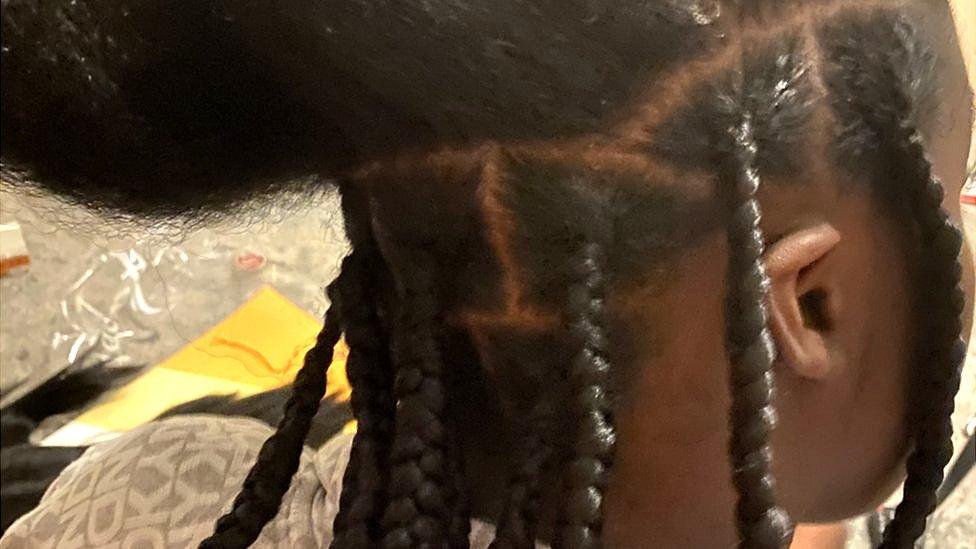
Keziah is very passionate about not wanting other children to go through the same feelings she had about her hair: "I want it to really influence black youth.
"I want my story to shine a light on Afro-textured hair, the people who wear it now, the people who wore it before and the people who wear it in the future."
Keziah wants more education for all about afro hair, she said: "My experience may be similar to what others may have gone through, meaning that there is no reason for why it should go on any longer.
"It should be taught and celebrated throughout all races so they understand in order for them to pass it on to other generations."
"If we start by showing this initiative today we can ensure it will bring a happier, brighter tomorrow."
- Published15 September 2023
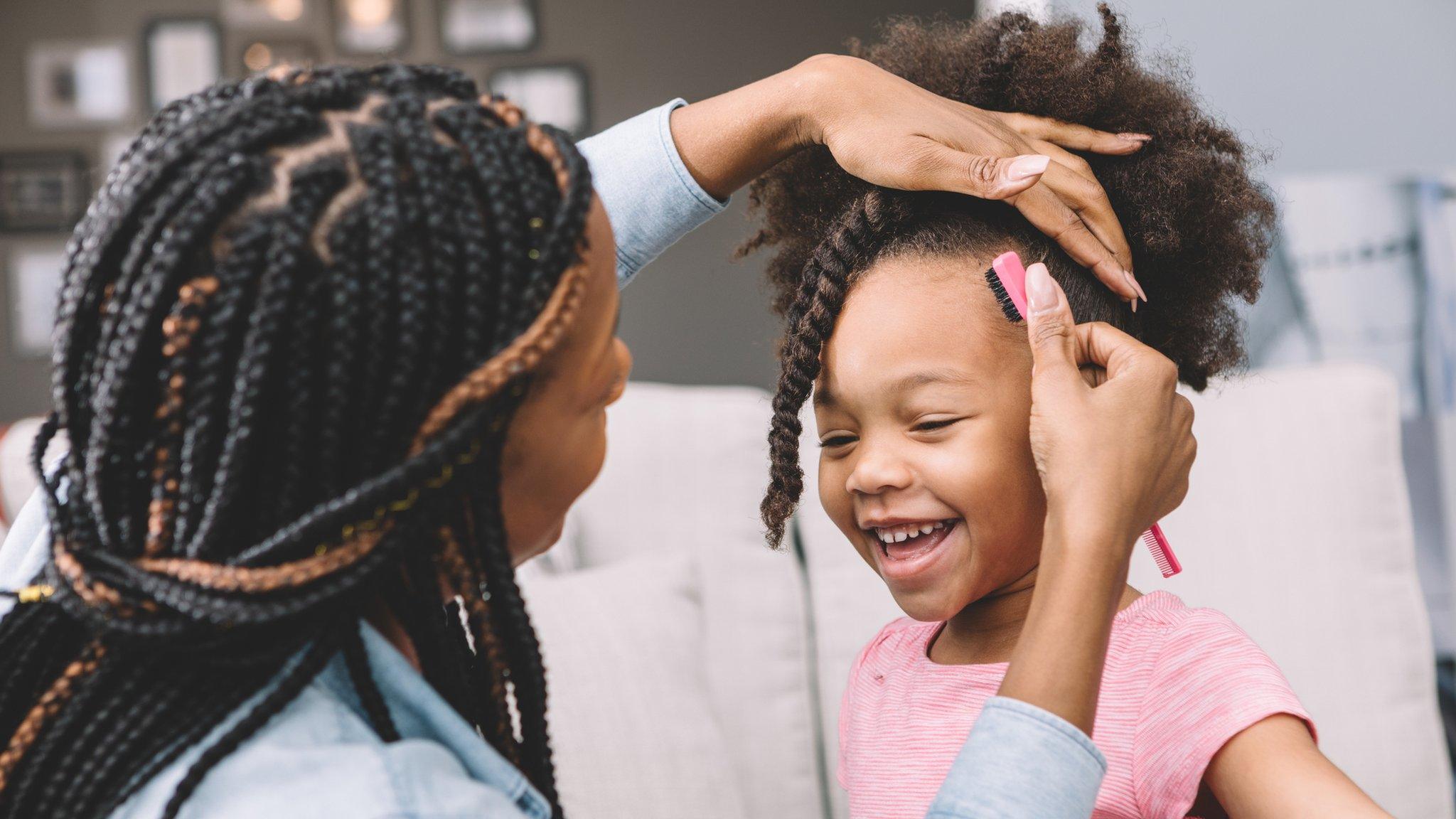
- Published14 September 2023
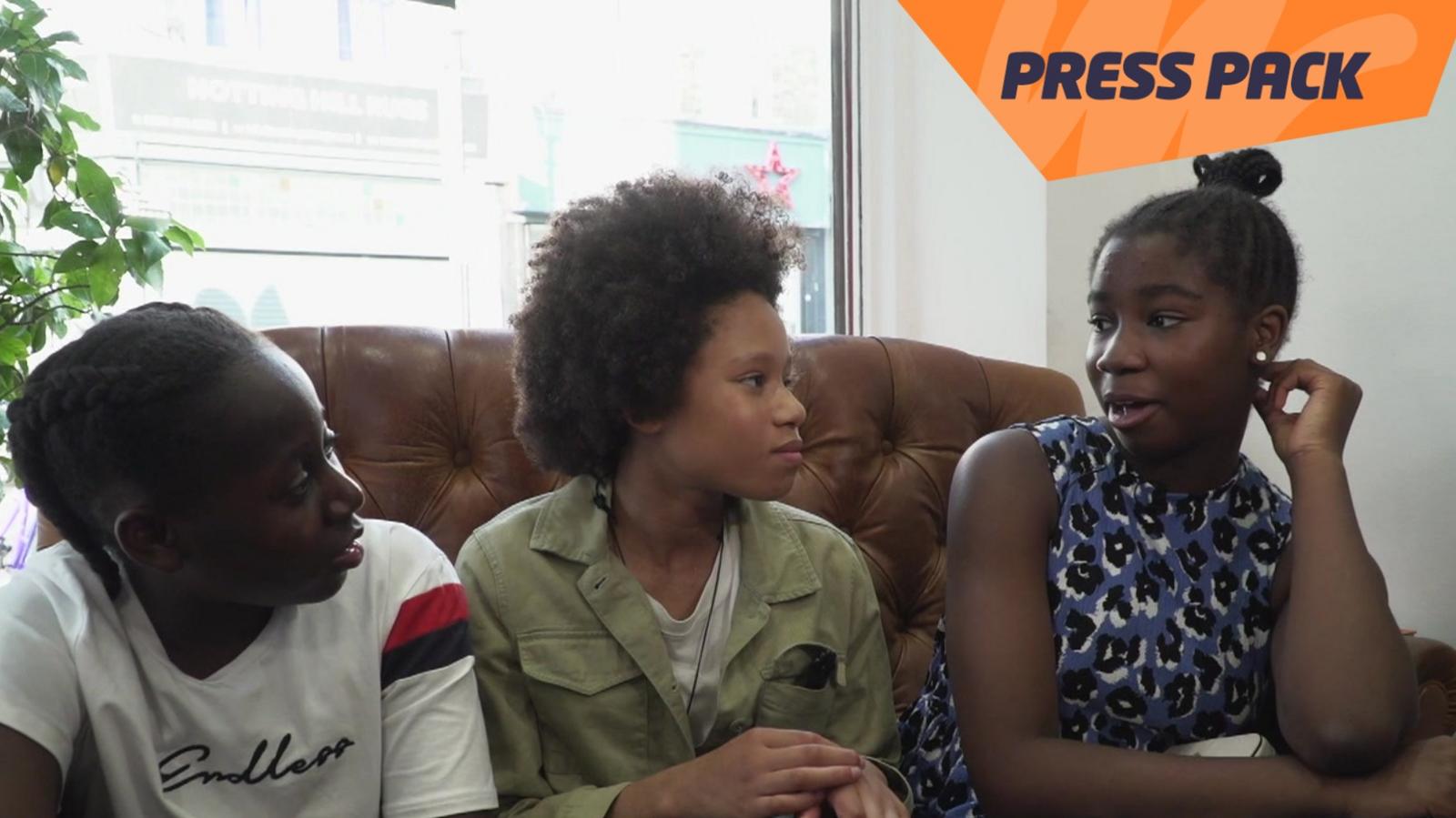
- Published14 September 2018
